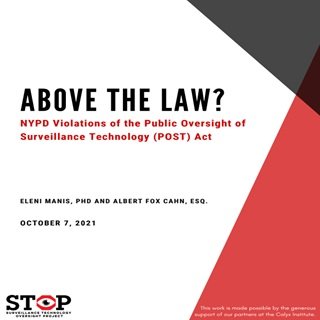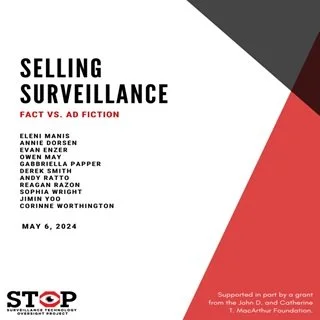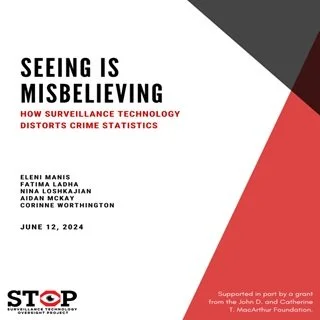By Eleni Manis, PHD and Albert Fox Cahn, Esq
In this report, S.T.O.P. documents the New York City Police Department (NYPD)’s repeated failures to comply with New York City’s Public Oversight of Surveillance Technology Act (POST Act). Enacted in 2020, the POST Act is the first law to oversee the NYPD’s use of surveillance technology. A first attempt to regulate NYPD’s surveillance tools, the law only requires NYPD disclose its surveillance tools. As this report establishes, NYPD falls far short of the reporting norms set by other police departments subject to similar surveillance technology oversight laws. The report concludes by calling on the New York City Council to use its oversight authority to ensure that the bill is not ignored. S.T.O.P. also recommends that individual lawmakers and civil society organizations continue to evaluate potential litigation, seeking judicial intervention to compel the NYPD to comply with the POST Act.










